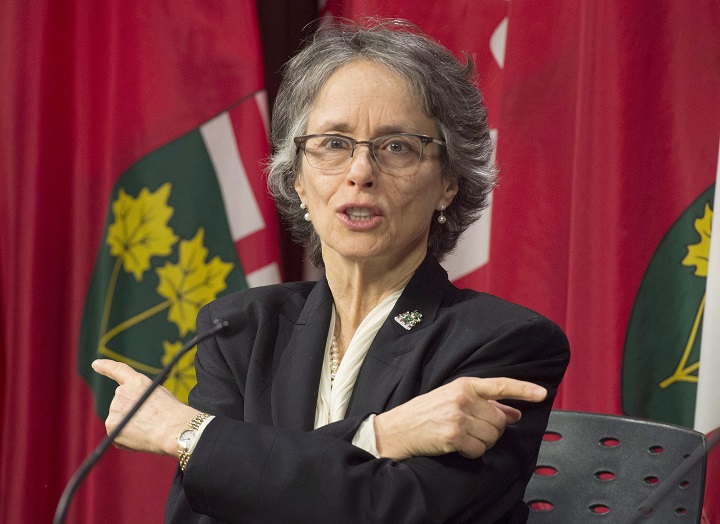Raw sewage has been overflowing into Ontario’s lakes and rivers at an alarming rate and the government is doing little to stop it, the province’s environmental watchdog said Tuesday as she laid out broad changes required to help keep waterways clean.

Environmental Commissioner Dianne Saxe outlined her concerns and recommendations in an annual report — called Back to Basics — that looked at the state of the province’s waterways between April 2017 and March this year.
During that time, the report found that raw sewage overflowed into southern Ontario waterways 1,327 times. More than half of those overflows — 766 — were from nearly 60 outdated municipal sewer systems that combine sewage and stormwater.
“Despite closed beaches and decades of concern the government has still not required these municipalities to do everything reasonable to stop their overflows,” Saxe said.
LISTEN: Environmental Commissioner Dianne Saxe on her latest annual report
Saxe’s report explained that sewer overflows are often caused during heavy rains — when excessive stormwater has nowhere to escape, it funnels into sewers causing them overflow and spill untreated contents into lakes or rivers.

Get daily National news
The province’s waterways were also being affected by run-off laden with fertilizer and road salt, she said.
While the province has the regulatory power to penalize municipalities for the overflows, Saxe said the government has turned a blind eye to the issue.
“The law says it’s illegal to dump filth into our water,” she said. “A municipality can be excused if they have used due diligence, meaning all reasonable measures. I don’t know any municipality that is taking all available measures.”
Saxe recommended the province require every municipality with combined sewers to take action to eliminate overflows using measures like additional stormwater fees and building additional infrastructure.
“The failures described in this report, they’re not inevitable,” Saxe said. “Small changes can better protect Ontario’s water, wetlands, woodlands and wildlife. My report offers sensible solutions, many cost relatively little, and would yield big rewards.”
- Real Canadian Superstore fined for ‘misleading’ Product of Canada displays
- Danielle Smith promises Alberta referendum over immigration, Constitution changes
- ‘No reason to continue discussing’: Ontario mayor wants Andrew’s name dropped
- NDP leadership candidates pitch their rebuilding plans in final debate
The report also noted that provincial standards on toxic waste poured into waterways haven’t been updated in 25 years.
Environment Minister Rod Phillips said the Progressive Conservative government is currently looking at the sewage discharge issue across the province but would not say if more funding would be coming for municipalities to address the problem.
“We’ll look at the totality of our relationship with municipalities,” he said. “We’ll look at it in context of the environment and other things as well. I think the report provides some interesting ideas and important ideas.”
Green party Leader Mike Schreiner called the sewage overflow problem “disgusting” and said the government must move to address it.
“If there’s one thing I hope this government hears out of the environment commissioner’s report, is that it’s unacceptable to continue to use our waterways as a sewer and it needs to stop,” he said.
Schreiner said the province should make it easier for municipalities to access “green” infrastructure funding to help make the necessary changes to their sewer systems. At the moment, many environmentally-focused infrastructure projects don’t qualify for funding, he said.
NDP environment critic Ian Arthur said the report highlights how the problem has been around for a while and how successive governments have failed to address it.
“It is going to be so much harder to deal with the effects of climate change if we don’t have these basics done,” he said.







Comments
Want to discuss? Please read our Commenting Policy first.